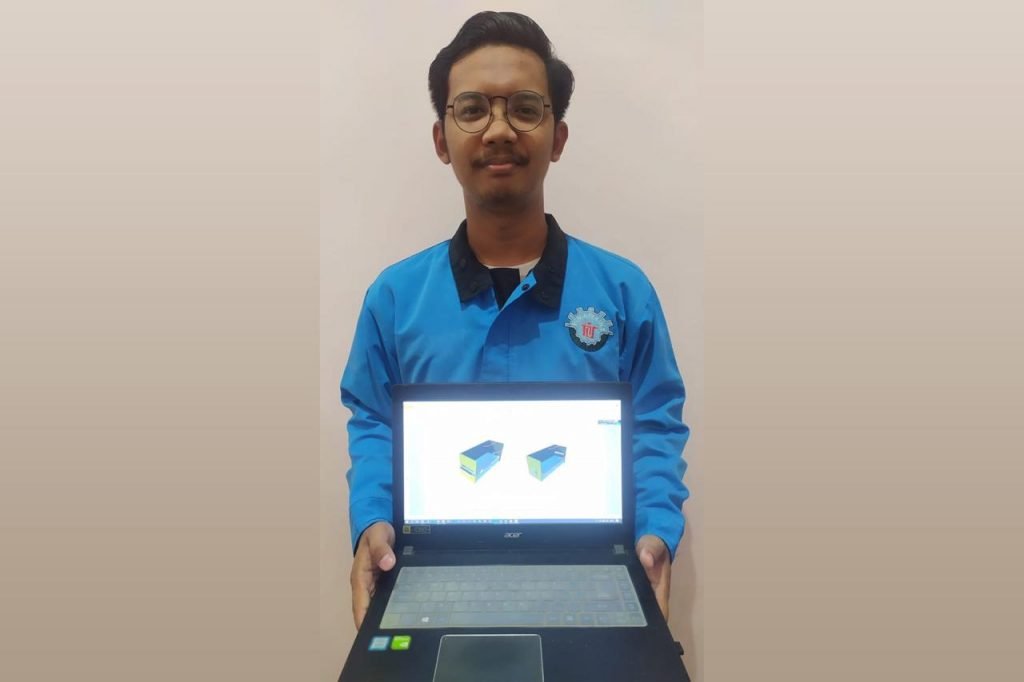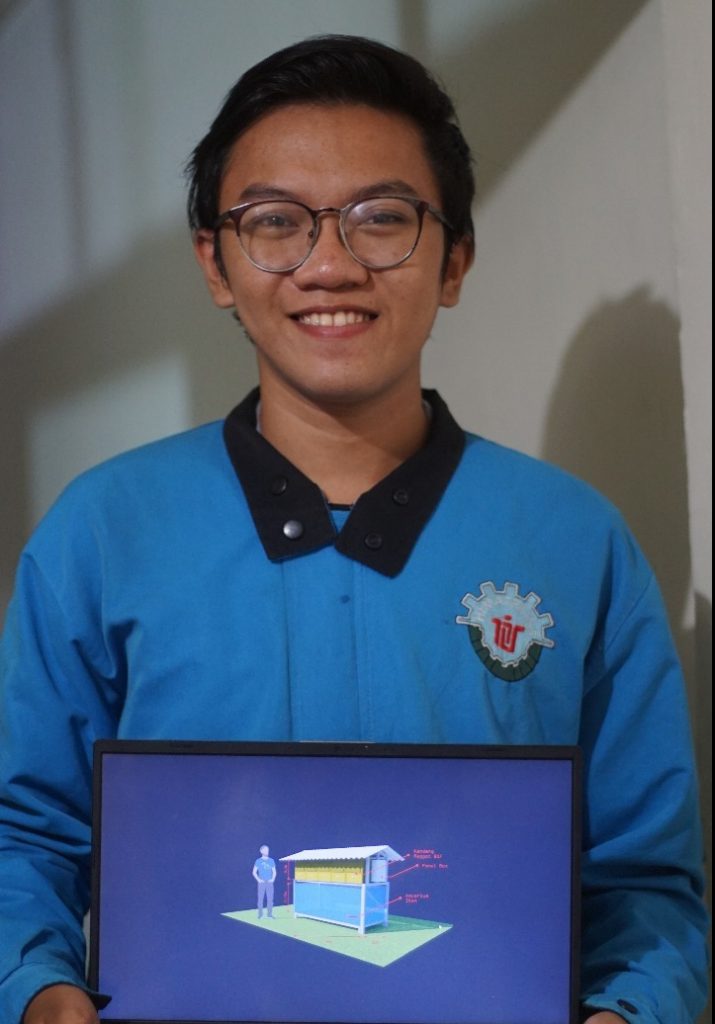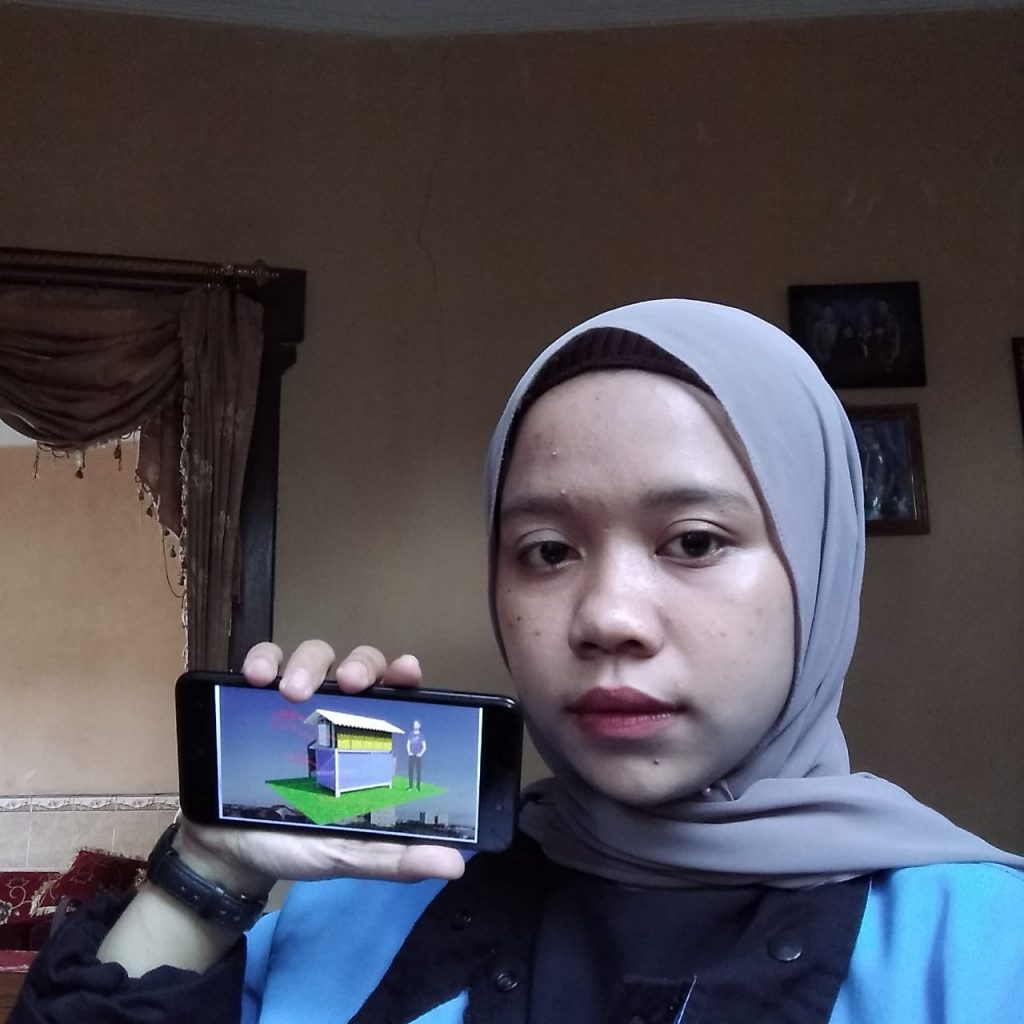ITS Students Innovation to Help Process Organic Waste
Faculty

The ITS Sansboss Team leader, Achmad Ali Ulumuddin, shows the KOMBO design on a laptop screen
ITS Campus, ITS News – Bright ideas keep coming up from Institut Teknologi Sepuluh Nopember (ITS) students. The three students of the Department of Instrumentation Engineering, Faculty of Vocational Study, who are also members of the SansBoss Team propose technological innovations to process household organic waste.
By developing Internet of Things (IoT) based temperature and humidity control technology to breed Black Soldier Fly (BSF) fly larvae. Then the fly larvae are used to process household-scale organic waste.
The SansBoss Team leader, Achmad Maulana Ali Ulumuddin, explained that household activities always leave organic waste such as food leftovers. This kind of garbage often even causes unpleasant odours and pollutes the environment. “Heaps of organic waste are also a place for dangerous insects to live,” he said.

ITS Sansboss team member, Evan Yudha Pratama, shows the KOMBO design
Alan explained that previously BSF fly cultivation had been used for processing organic waste in Indonesia. BSF larvae can degrade organic waste by extracting energy and nutrients from vegetable waste, food scraps, animal carcasses, and faeces as food ingredients.
The cultivation motivated Alan and his two colleagues, Evan Yudha Pratama and Gita Marcella Khoirun Nissa, to study various scientific articles regarding this waste processing method. Although easy to breed, they found that BSF larvae were much more active in warm conditions. “When the environmental conditions are right, BSF larvae can degrade up to 80 percent of the amount of organic waste given,” he explained.
Alan said BSF larvae would grow optimally at temperatures around 29-33°C and humidity levels of around 29-33 percent. Given the uncertain weather conditions in Indonesia, the three of them designed technological innovations that we’re able to regulate BSF fly larvae cultivation so that they were always in optimal conditions. “So the larvae can develop actively and devour large amounts of organic waste,” explained the student of batch 2017.

The design of KOMBO, a place for BSF larvae cultivation with an IoT-based automatic control system by the ITS Sansboss team
Armed with the knowledge of automation and control systems they had already learned in a lecture, the team complementedKOMBO with a temperature sensor, air humidity sensor, and exhaust fan. Thus, an automatic control mechanism can be made of the temperature and humidity of the cultivation site. “This tool is also equipped with an IoT system so that monitoring the conditions of the cultivation site can be done remotely through a mobile application,” he added.
Apart from degrading organic waste, Alan also explained that BSF larvae have other economic values. “The breed from BSF larvae can also be used as an ingredient for animal feed and diabetes medicine,” he said.
Not in vain, the innovation outlined in the title KOMBO: IoT-based Automatic Control System for Black Soldier Fly Maggot Cultivation as an Effort to Utilize Organic Waste and Substitute For Animal Feed has won national recognition. Under the guidance of a lecturer, Herry Sufyan Hadi ST MT, this innovation won second place in the 2020 Research and Development Competition (RnDC) held at Universitas Negeri Yogyakarta (UNY), a few days ago. (fat/sel/ITS Public Relations)

ITS Sansboss Team member, Gita Marcella Khoirun Nisa, shows the KOMBO design
ITS Sansboss Team member, Gita Marcella Khoirun Nisa, shows the KOMBO design
Latest News
-
Success Story of IoT Implementation: Salt and Drinking Water Production for Gili Genting Island
Gili Genting Island, Madura, is known for its high seawater salinity, ranking second in the world after the Dead
-
Faculty of Marine Technology – ITS Conducts Collaboration Exploration with Semarang Maritime Polytechnic (PIP)
Faculty of Marine Technology - ITS Conducts Collaboration Exploration with Polytechnic of Marine Science (PIP) Semarang Date: March 11,
-
The Journey of an Electrical Engineering Student to Success with Nogogeni ITS
The Nogogeni team from Institut Teknologi Sepuluh Nopember (ITS) once again demonstrated its commitment to innovation in energy-efficient vehicles.





